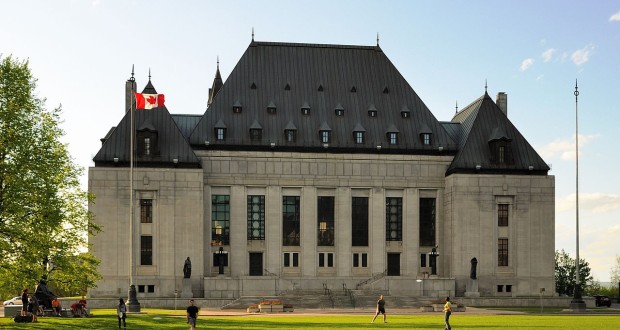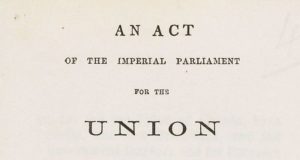Caron concerns the relationship between Québec’s workers’ compensation statute and its anti-discrimination law, colloquially known as the Québec Charter (and, I suspect, the relationship between similar statutes in other Canadian jurisdictions too, since this legislation tends to be fairly similar). The question was whether, in the context of an injured employee’s endeavour to return to work, the the duty to accommodate, long understood to be part of anti-discrimination law in the employment context, imposed obligations on an employer beyond those created by the workers’ compensation scheme. The administrative tribunal responsible for the application of the workers’ compensation legislation decided that it did not. The majority of the Supreme Court (as well as the courts below) disagreed.
When courts review a decision made by an administrative tribunal, they must begin by determining the “standard of review”. As Justice Stratas put it in his précis of Canadian administrative law, “how ‘fussy’ should the court be”? (33) Should the court insist that the tribunal’s decision be correct, or is it enough for the decision to be reasonable? Justice Abella, writing for a five-judge majority, is confident that “[t]his case is in classic reasonableness territory” because the tribunal “is interpreting the scope and application of its home statute”. [4] Classic, because under the framework articulated in Dunsmuir v New Brunswick, 2008 SCC 9, [2008] 1 SCR 190, judges are indeed generally required to defer administrative decision-makers interpreting their enabling legislation. However, the concurring opinion, written by Justice Rowe (with the agreement of Justice Côté) disagrees, endorsing the Québec Court of Appeal’s view that the issue of whether the tribunal had to apply the Québec Charter both goes to the determining the bounds of the tribunal’s jurisdiction and is of central importance to the legal system as a whole ― both factors which Dunsmuir said triggered correctness review.
I have no firm opinion on which of these views is right under the current law. Suffice it to say that Justice Abella’s is at least plausible. After all, Dunsmuir said courts should defer to a tribunal’s interpretation not only of its “home” statute, but also to that of “statutes closely connected to its function, with which it will have particular familiarity”. [54] Arguably, the Québec Charter‘s anti-discrimination provisions are “closely connected” to the function of a workers’ compensation tribunal. It is too bad, however, that Justice Abella neither acknowledges nor engages with the concurrence’s view.
Be that as it may, the disagreement between majority and concurrence turns out to be quite irrelevant. Having declared in favour of reasonableness, Justice Abella never once shows a sign of actually deferring to the tribunal’s reasoning. Of course, even on a reasonableness standard, courts will sometimes overturn tribunals’ decisions. However, as defined in Dunsmuir ― which Justice Abella doesn’t actually cite ―
reasonableness is concerned mostly with the existence of justification, transparency and intelligibility within the decision-making process. But it is also concerned with whether the decision falls within a range of possible, acceptable outcomes which are defensible in respect of the facts and law. … Deference in the context of the reasonableness standard therefore implies that courts will give due consideration to the determinations of decision makers. [47], [49]
There is no “due consideration”, or any consideration, of the tribunal’s determination in Justice Abella’s reasons. She is uninterested in whether it justified its decision in a transparent and intelligible way. In fact, she does not even bother summarizing the tribunal’s opinion, as Justice Rowe does (and as is customary), let alone paying it any attention. Justice Abella proceeds with her own analysis of the applicable law, and never pauses to show why the tribunal’s different conclusion was not just mistaken but unreasonable. There is, in reality, no difference between the pretended “reasonableness” analysis like Justice Abella’s and avowedly non-deferential review like that undertaken by Justice Rowe. Justice Stratas calls this sort of thing “disguised correctness review”, but calling the disguise in this case flimsy is already giving it too much credit.
Now, one might ask just what proper reasonableness review, as described in Dunsmuir, would have involved in Caron. The administrative tribunal’s reasons on the point in issue (at [61]-[91]) are fastidious, but they consist in an analysis of the relevant judicial decisions. In effect, the tribunal functions as a lower court, and not as a specialized, expert decision-maker bringing a unique policy-informed perspective or “field sensitivity” to the issue before it. Even if one accepts that such factors can justify judicial deference to tribunals, it is not obvious why the Supreme Court would or should defer to a decision where they are absent.
So Justice Abella could have said that no deference is due when a tribunal’s expertise is not in play. Such a position would be defensible. Indeed, it would arguably be more consistent with the original Dunsmuir framework, which as I see was intended to be a flexible one, than the Supreme Court’s post-Dunsmuir decisions that elevated deference into dogma, notably Edmonton (City) v Edmonton East (Capilano) Shopping Centres Ltd, 2016 SCC 47, [2016] 2 SCR 293. In that case, the majority attributed expertise and pretended to defer to reasons not actually given by a tribunal that hadn’t even addressed the issue that the Supreme Court was deciding. I described that process as a judge “playing chess with herself, and contriving to have one side deliberately lose to the other”. But, as with Edmonton East, it seems to me that a position cannot be defensible unless it is actually defended. Justice Abella, to repeat, could have defended the position I have just outlined ― but she doesn’t, and we are left to wonder why exactly she approached Caron as she did (and not as she said she did).
Unexplained departures from previous pronouncements on standard of review are becoming a trend in the Supreme Court’s administrative law jurisprudence. This trend previously manifested itself in Ktunaxa Nation v British Columbia (Forests, Lands and Natural Resource Operations), 2017 SCC 54 and Association of Justice Counsel v. Canada (Attorney General), 2017 SCC 55. As I noted here, in neither of these cases did the Court adopt the approach to judicial review which its precedents seemed to dictate ― an approach that called for deference to adjudicative or discretionary administrative decisions involving the Canadian Charter of Rights and Freedoms. The Court simply undertook its own constitutional analysis, without explaining whether the previous framework was still good law, and if not, why, or to what extent.
This trend, if that’s what it is, is disturbing. As I wrote in my comment on Ktunaxa and Justice Counsel, I would be very happy to see the Supreme Court nix its deferential review of administrative decisions involving the Charter. I am inclined to think that getting rid of deference on most, perhaps on all, questions of law would be a good thing too. But if that’s what the Supreme Court wants to do, it must tell us, instead of saying one thing (or nothing at all) and doing another, which makes it possible for the seemingly disfavoured approaches to be used again, without litigants being able to predict when or why they will be. As I previously argued, the Court’s behaviour is problematic from the standpoint of the Rule of Law, because it makes the law unstable and obscures the fact of legal change, and fails the “justification, transparency, and intelligibility” test articulated in Dunsmuir, by which judicial decisions, no less (and perhaps more) than administrative ones, should be assessed.
Between Ktunaxa, Justice Counsel, and now Caron, it is tempting to conclude that the Court is growing disenchanted with deference to administrative decision-makers’ decisions on questions of law. Yet perhaps such a conclusion would be premature. We cannot know, with the court systematically failing to explain itself and even individual judges changing tack, unpredictably, from case to case. In Caron, that the Supreme Court actually engages in correctness review is clear enough, but why it does so, whether it still thinks that there is a place for reasonableness review, and if so, in what circumstances, is anybody’s guess. This uncertainty is problematic. If deference is indeed dead, the Supreme Court should ensure that it stays so, and doesn’t come back to eat the brains of Canadian lawyers and judges.
This article was previously published on Double Aspect, Professor Sirota’s award-winning blog
 Advocates for the Rule of Law
Advocates for the Rule of Law



